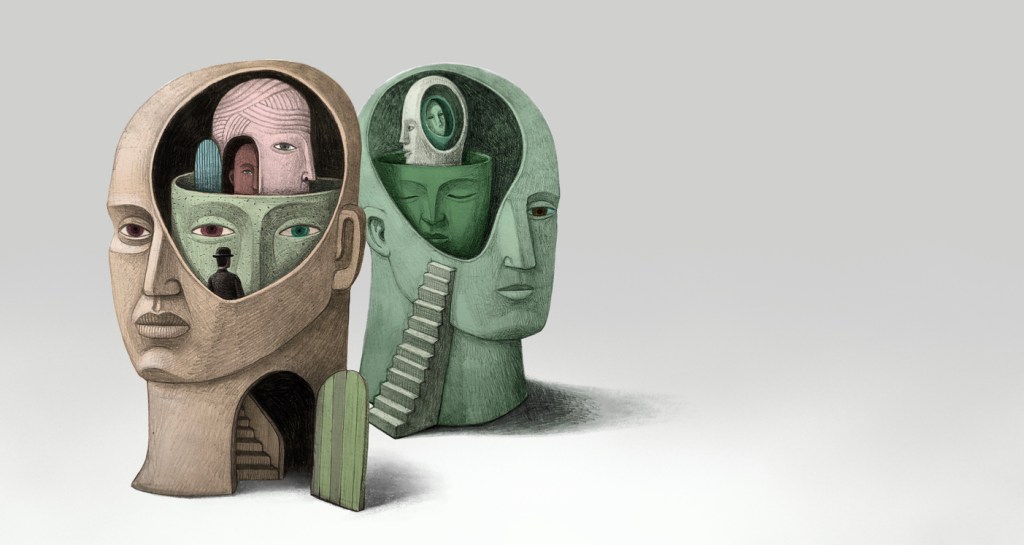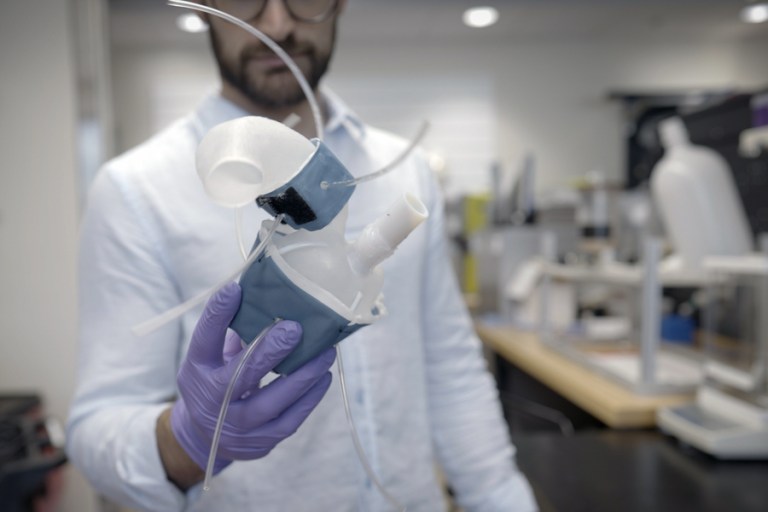“It’s me, hi, I’m the problem, it’s me.” A catchy Taylor Swift line or a harrowing realization that can keep you up at night? Both — how fun!
In all seriousness, though, being self-aware is a good thing. Taking a long hard look in the mirror may not always be comfortable, but doing so comes with a host of benefits in numerous areas of your life.
For her book Insight, organizational psychologist Tasha Eurich looked at hundreds of studies on self-awareness. She defines the concept as “the ability to see ourselves clearly — to understand who we are, how others see us, and how we fit into the world around us.”
At this point, you might be wondering how on Earth you’d know you’re not self-aware if you’re indeed not self-aware. Don’t panic about being potentially oblivious, though: Apparently, most of us are. Only about 10%-15% of people possess true self-awareness, according to Eurich’s research.
Even if you believe you are among that small percentage, there’s likely still room to improve. Sometimes, people are quite attuned to or focused on certain aspects of their behavior, only to discover there are elements they haven’t been cognizant of at all.
Expanding your self-awareness requires effort and focus, but it’s perfectly possible. Before we get to strategies for doing so, let’s take a deeper look at why it matters.
How Being Self-Aware Helps

Self-awareness has been linked to increased creativity and confidence, better decision-making and communication, and improved self-control.
Additionally, a 2022 study determined that self-awareness protected the working memory against the adverse effects of chronic stress. And research from 2015 showed the trait was of particular benefit in the workplace, finding that self-awareness was positively associated with job-related well-being and could be improved through training.
Being in tune with yourself is especially important when it comes to your relationships with others. “By being self-aware, we may actually leave people feeling more comfortable, leading to a far more prosocial and healthier social environment,” clinical psychologist Ramani Durvasula told The Washington Post. “I actually think that self-awareness would change the world overnight if everyone could practice it.”
Big words. So how do you practice it?
Strategies for Expanding Your Self-Awareness

Ask the Right Questions
The distinction between being self-aware and being introspective is important to know. Though the terms are sometimes used interchangeably, they aren’t one in the same. Introspection is the examination of one’s own thoughts and feelings — and when done ineffectively can actually be detrimental.
In Eurich’s research, she was surprised to find that people who introspected were less happy, more stressed, more depressed, more anxious, less in control of their lives, and less happy in their work.
But understanding yourself does require looking inward and asking questions. To do so in an effective manner, focus on asking “what” instead of “why.”
“The more we ask why, the more we ruminate,” Eurich explained at a National Institutes of Health seminar in 2019. “Instead of asking, ‘Why am I stressed?’ ask, ‘What alterable patterns can I find in my stress?’ Instead of asking, ‘Why am I unhappy?’ perhaps ask, ‘What upsetting situations can I avoid?’”
She continued: “‘Why’ questions draw us to our limitations; ‘what’ questions help us see potential. ‘Why’ questions can depress us and make us emotional. ‘What’ questions help us to be more logical and action-oriented … and help us move forward.”
For 20 specific questions to help you cultivate more self-awareness, and the reason each one works, click here.
Try Taking Personality Assessments
Another way to start seeing yourself more clearly is through the help of personality assessments. Similar to asking yourself questions, tests like these can reveal information about who you are and why you do the things you do.
The iNLP Center offers 12 multiple choice questions that probe your level of self-awareness in 10 different areas and may inspire you to narrow in on opportunities for personal growth. Others you might consider are the Big Five personality test, 16 Personalities, and Project Implicit, which can help illuminate unconscious biases and associations. A few others are listed here, courtesy of the University of Colorado, Boulder.
These kinds of assessments are not meant to definitively tell you who you are, but to aid you in discovering that yourself.
Hold a “Dinner of Truth”
What better way to learn about yourself than to ask the people who know you best?
It may sound utterly terrifying to poll your loved ones on how you can self-improve, but if you can pull through the initial anxiety and discomfort — and resist the natural inclination to respond defensively to their commentary — you’ll be doing yourself a great service.
One way to do this is for those in your inner circle to provide general feedback about how you interact with them. Another (even more terrifying) method is referred to as a “Dinner of Truth.”
Recommended by Eurich, who borrows the concept from communications professor Josh Misner, a Dinner of Truth involves inviting someone with whom you’d like to improve your relationship to a meal, cocktail, or coffee, and asking them one specific question: “What do I do that is most annoying to you?”
“The first time I did this, my friend said, ‘I love you in person, but I hate you on social media,’” Eurich told PsychCentral. “It helped me to see things I hadn’t seen before, feel more empowered, and improve my relationship with this person. Any time we’re vulnerable with the people we love, we have a deeper connection.”
Reevaluate
Per psychologist Tchiki Davis, founder of The Berkeley Well-Being Institute, self-awareness isn’t a static trait. So remember to continue checking in with yourself periodically.
“Both ‘self’ and ‘awareness’ change over time,” Davis told Nice News. “In other words, what we believe to be the self or identity changes as we move through life. And, what our awareness focuses on changes as we move through life.”
“Thus, self-awareness is an ever-evolving process and can mean very different things to people at different stages of development.” Learn more about the changes in awareness through the different seasons of life here.
RELATED: The 8 Dimensions of Wellness: Simple Self-Care Practices for Every Area of Life











